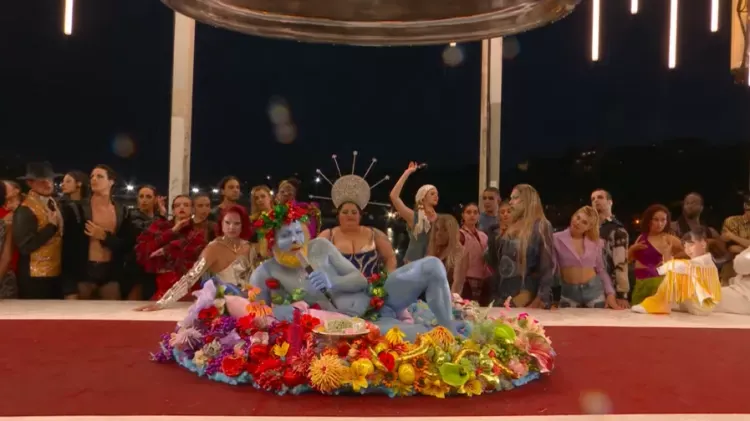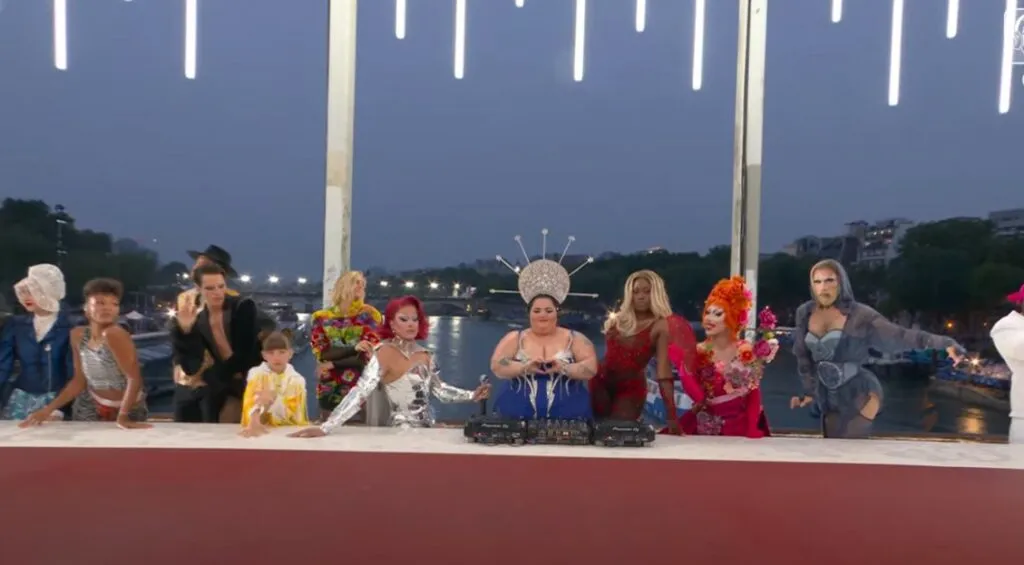Table of Contents
ToggleIntroduction
The opening ceremony of the Paris 2024 Olympics was a highly anticipated event, celebrating not only sports but also global culture. However, what was meant to be a grand spectacle turned into a significant controversy due to the artistic representation of the Last Supper. In this article, we will delve into the context, execution, and reactions surrounding this contentious portrayal, offering a comprehensive analysis of the situation.
The Paris Olympics Opening Ceremony
The Event and Its Expectations
The Olympics are among the most significant global sporting events, with the opening ceremony serving as a key highlight. In Paris, the ceremony aimed to showcase France’s cultural heritage while presenting an inclusive and modern celebration. The anticipation was high for a performance that would encapsulate the essence of contemporary France and its role on the world stage.
Olimpíadas zombando de fé cristã em Paris
Paris se tornou palco de controvérsia durante as Olimpíadas com uma apresentação que muitos consideraram uma paródia ofensiva da Santa Ceia de Cristo. O evento incluiu drag queens e um homem barbado vestido de mulher, o que gerou… pic.twitter.com/d3f5e5UuPa
— MSP-Brasil (@mspbra) July 26, 2024
The Artistic Representation of the Last Supper
One of the most talked-about segments of the ceremony involved a reinterpretation of the Last Supper, a renowned painting by Leonardo da Vinci. The depiction featured drag queens, an artistic choice intended to provide a fresh perspective on the traditional scene. This representation was at the center of the ensuing controversy.
Analysis of the Controversy
Immediate Reactions and Criticisms
The choice to portray the Last Supper with drag queens provoked strong reactions from various quarters. Many Christians and critics felt that the presentation disrespected and mocked a central figure in Christian tradition. The sentiment of scorn and derision was prevalent among those who viewed the portrayal as offensive.
This has to be the end. Things certainly can’t get any worse?…. Can they?
Paris Olympics pic.twitter.com/N1wXUYgSXW
— DD Geopolitics (@DD_Geopolitics) July 26, 2024
Critics’ Perspectives
The representation faced sharp criticism from public figures and institutions. The French Episcopal Conference condemned the portrayal as an act of mockery against Christianity. Other religious leaders, such as the Archbishop of Santiago, Chile, and Bishop Robert Barron of Winona-Rochester, also voiced their disapproval, accusing the ceremony of disrespecting sacred values.

Responses and Defenses
Conversely, some analysts and supporters defended the presentation as an attempt to reinterpret traditions in an inclusive and innovative manner. Political scientist Uriã Francelli highlighted that France’s cultural context, which values secularism and diversity, influenced the artistic choice. Defenders argued that the presentation aimed to foster acceptance and reflection on contemporary societal changes.
Impact and Reflections
Cultural and Religious Impact
The ceremony sparked significant debate about the balance between artistic innovation and respect for religious traditions. The negative reactions underscored the challenges of presenting sacred traditions in modern contexts. The controversy also illustrated the difficulty of maintaining sensitivity while showcasing creativity in large-scale events.
The Role of Social Media
Social media played a crucial role in amplifying reactions. The polarized opinions—some defending artistic creativity and others condemning perceived disrespect—reflected the diverse views on the portrayal. Hashtags and online discussions highlighted different perspectives, contributing to the escalation of the controversy.
Final Thoughts
The Role of International Events in Cultural Representation
The controversy surrounding the Paris Olympics opening ceremony underscores the challenges of representing cultural and religious themes sensitively. While the ceremony aimed to modernize and diversify artistic representations, the reactions demonstrated the complexity of addressing sacred traditions in innovative contexts.
Future of Artistic Representation in Global Events
The debate generated by this ceremony may influence how future artistic representations are planned and presented in international events. Balancing innovation with respect for traditions will be crucial to avoid controversies and ensure that global celebrations continue to promote understanding and inclusion in a respectful manner.
Conclusion
The opening ceremony of the Paris 2024 Olympics not only marked the beginning of the games but also sparked a significant discussion about the intersection of art, culture, and religion. Reflecting on the reactions and impact of the Last Supper representation, it is essential to consider how large-scale events can celebrate diversity while deeply respecting the traditions and beliefs of all participants.


